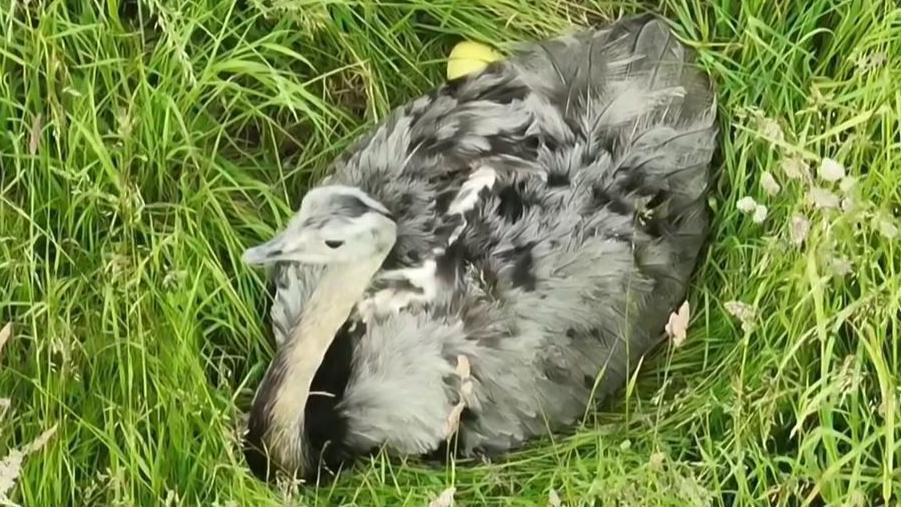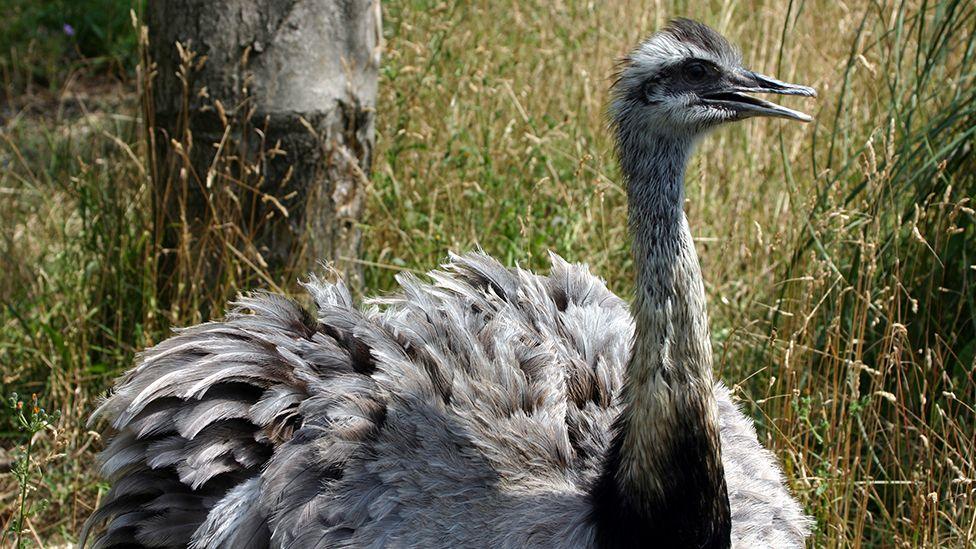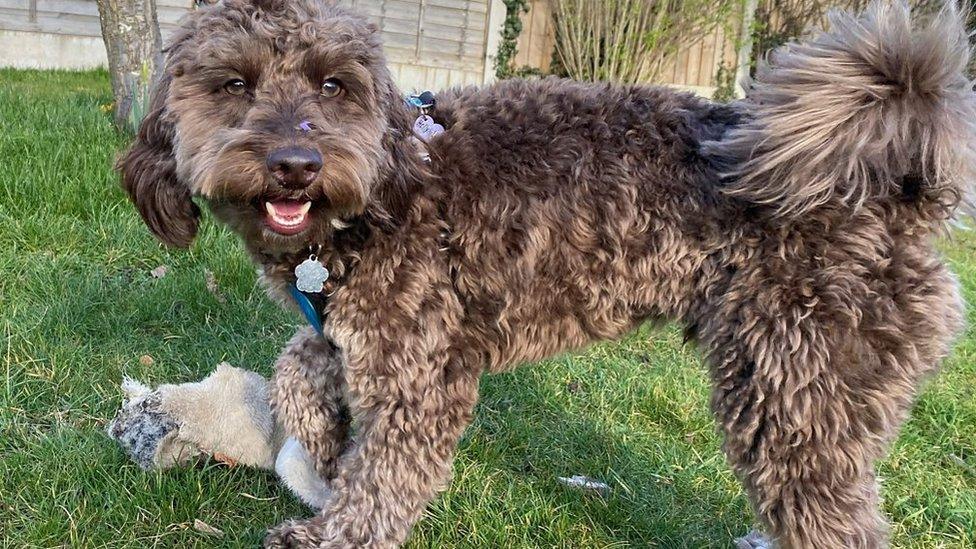Runaway rhea found safe and well after search

Buzz, who escaped from a paddock in East Barkwith on Sunday, was found safe and well in a field about two miles away
- Published
A runaway rhea that escaped from a garden in Lincolnshire has been found safe and well.
Buzz broke out of the paddock in East Barkwith on Sunday afternoon.
Owner Tammy said she had been "very worried" about the family pet.
A drone that was brought in to help search for the flightless bird spotted it in a field close to the nearby village of South Willingham.
"I'm very pleased to say Buzz came home last night," Tammy told BBC Radio Lincolnshire.
She said the eight-year-old animal was located by "the amazing team" from Nottinghamshire-based animal rescue charity, Drone to Home, which usually finds lost dogs.
"We then went in and were able to get some blankets over her and get her into the van," she said.
She also praised the local community and said everyone had been "really helpful keeping an eye out".
A drone helped locate a missing rhea, which disappeared from a Lincolnshire garden
Tammy said Buzz had possibly been spooked by their alpacas being shorn and had never previously escaped.
She had been concerned the animal, which posed no risk to the public, might have been scared and run into a car or fence.
However, Buzz "doesn't seem to have suffered any ill-effects" from her adventure, she added.
'Legged it'
In a post on social media, the drone charity, which offers a free service and relies on donations, said the rescue had been successful, with a "great bunch of people helping [out]".
"Everything worked out extremely well and this beautiful bird is now home safe," it added.
Phil James, who started the charity, said they had managed to locate the rhea within about an hour of being called out on Monday.
However, initial attempts to catch the 5ft (1.5m) rhea with a net had failed after it "legged it" across the field at about 40mph (64km/h).
After returning on Tuesday with more people, Mr James said the bird was caught in what he described as one of the most challenging rescues he had ever been involved with.
"We had luck on out side and it ran almost to where we wanted it to go," he said.
The team used thermal imaging drones to locate Buzz, who was sedated by a vet before being returned home.
"It's exactly the same [equipment] as what the police use to find criminals hiding in bushes and things - we just use [it] to find animals," he added.
Follow BBC Lincolnshire on Facebook, X (formerly Twitter), external, and Instagram. Send your story ideas to eastyorkslincs.news@bbc.co.uk, external
Related topics
- Published24 June 2024

- Published4 March 2023
